Policymakers and the media have recently paid increased attention to the government’s long-term budget shortfall. A bill in the House of Representatives would create a new congressional fiscal commission to work out bipartisan fiscal solutions.
The standard objections to a commission are that most fail and that commissions are what Congress does when it wants to avoid a problem, not solve it. And it is true that ultimately, a commission cannot make up for a lack of political will. But just letting fiscal problems simmer until there’s a huge increase in interest rates or some other crisis is not the right approach. The budget process is broken—Congress has not even passed an annual budget resolution in most of the last 20 years. That is a symptom of the underlying difficulty of fiscal issues. Congress certainly isn’t going to be able to “run” toward a long-term solution before it can even “walk” toward an annual budget without the additional help that a well-designed commission could provide.
That being said, I want to offer a simple but radical idea capable of creating a commission that could work. While many items factor into a commission’s potential for success, instead of having each party pick its own representatives on the commission, let the Republicans pick the Democrats and Democrats draft the Republicans.
Having each party pick the other party’s commission members is the opposite of long-standing practice, but it would be a timely and worthy change. In this age of not just partisanship but polarization, the parties generally don’t trust each other. Democrats fear that a commission may be a stalking horse for cuts in Social Security or other social programs, while Republicans fear that a commission would be a pretext for raising taxes.
Clearly, there are members of each party who would rather oppose the other party than work together. When each party picks its own commission members, it will inevitably choose some people who represent the confrontation wing of the party, rather than those who are willing to compromise.
But there are also senators and representatives who can engage constructively with one another and see the need for bipartisanship. Each party knows the members of the other party that they can work with—as well as those members who are fundamentally unwilling to reach across party lines.
If each party chose the other’s representatives on a commission, it would be very informative. Party leaders who wanted to jettison a fiscal solution could choose radical members of the other party, but then it would at least be obvious that the leaders did not want a solution in the first place.
But if leaders did want a commission to succeed, they would choose members of the opposite party who were known for their ability to compromise and whose views were closest to their own—a recipe for a center-based coalition. A “center-out” group is the only way an issue as contentious as fiscal policy will ever get resolved. I believe the result would be a group that is motivated and equipped to find a compromise solution.
A second—more conventional—factor is that we need everything—all taxes and spending programs—to be on the table. While this is a common mantra, one of its implications is not widely recognized. Specifically, many members of Congress have made significant fiscal “pledges” in the past—for example, not to raise taxes or not to cut Social Security benefits. While it may be too much to ask commission members to specifically disavow any past pledges, it would be perfectly reasonable to ask them to sign a pledge stating that now, given the circumstances, they are open to consideration of changes to any tax or spending program.
Of course, other factors affect the success of a commission. We need public buy-in from the White House and congressional leaders of both parties. A message from national leaders to the effect that “no one will get everything they want, everyone will sacrifice some of their priorities, and the outcome will be better for all” is essential. It would give members of Congress, who are elected from localities or states, “air cover” to accept some changes that might not be in their constituents’ narrow self-interest.
The commission must also be able to meet in private frequently to hash out differences and work out compromises. And, if we want real action on the recommendations of the commission, Congress should be required to vote up or down on its proposals within 90 days.
A commission may well fail. But as hockey great Wayne Gretsky said, “You miss 100% of the shots you don’t take.” A commission offers the possibility of a productive outcome, especially if it is designed to contain members that are motivated to find compromise and consider all taxes and government programs. Our country’s fiscal future depends on our ability to reach a more sustainable debt and deficit landscape; any action toward that goal is a welcome step in the right direction.


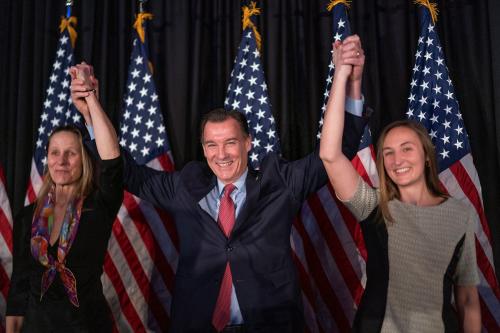
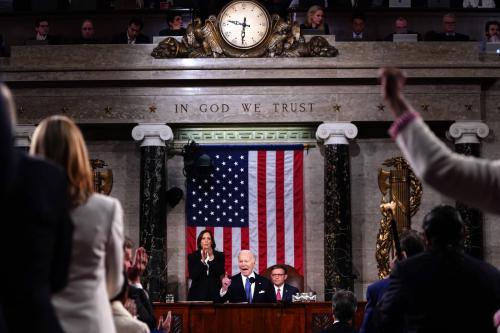
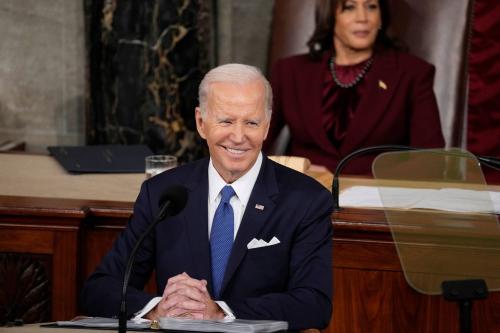


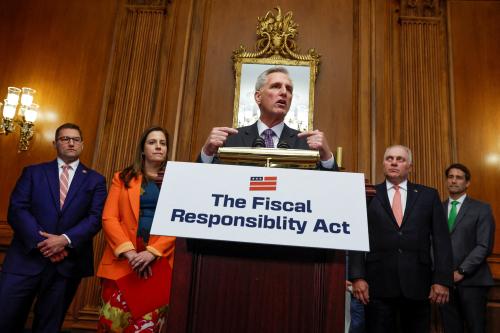

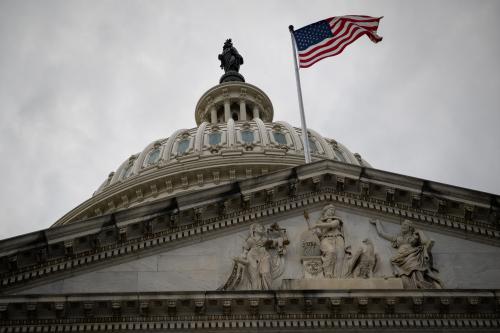
Commentary
A simple idea that might help a fiscal commission succeed
March 13, 2024